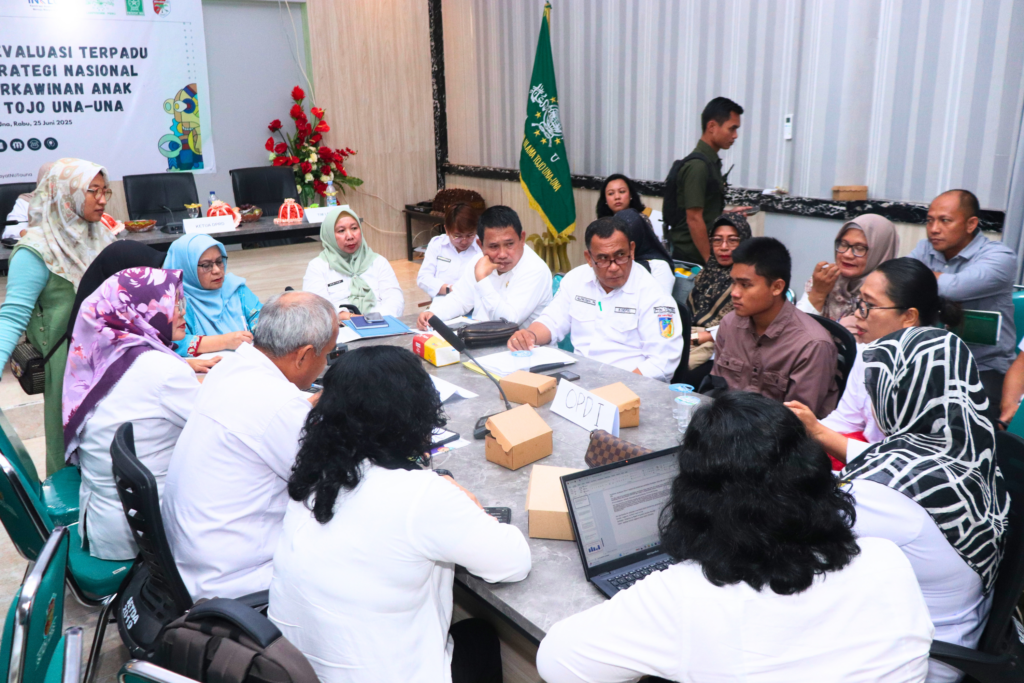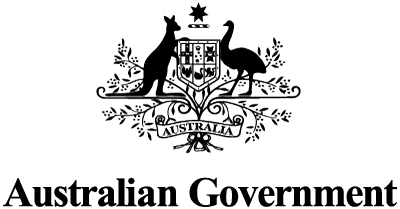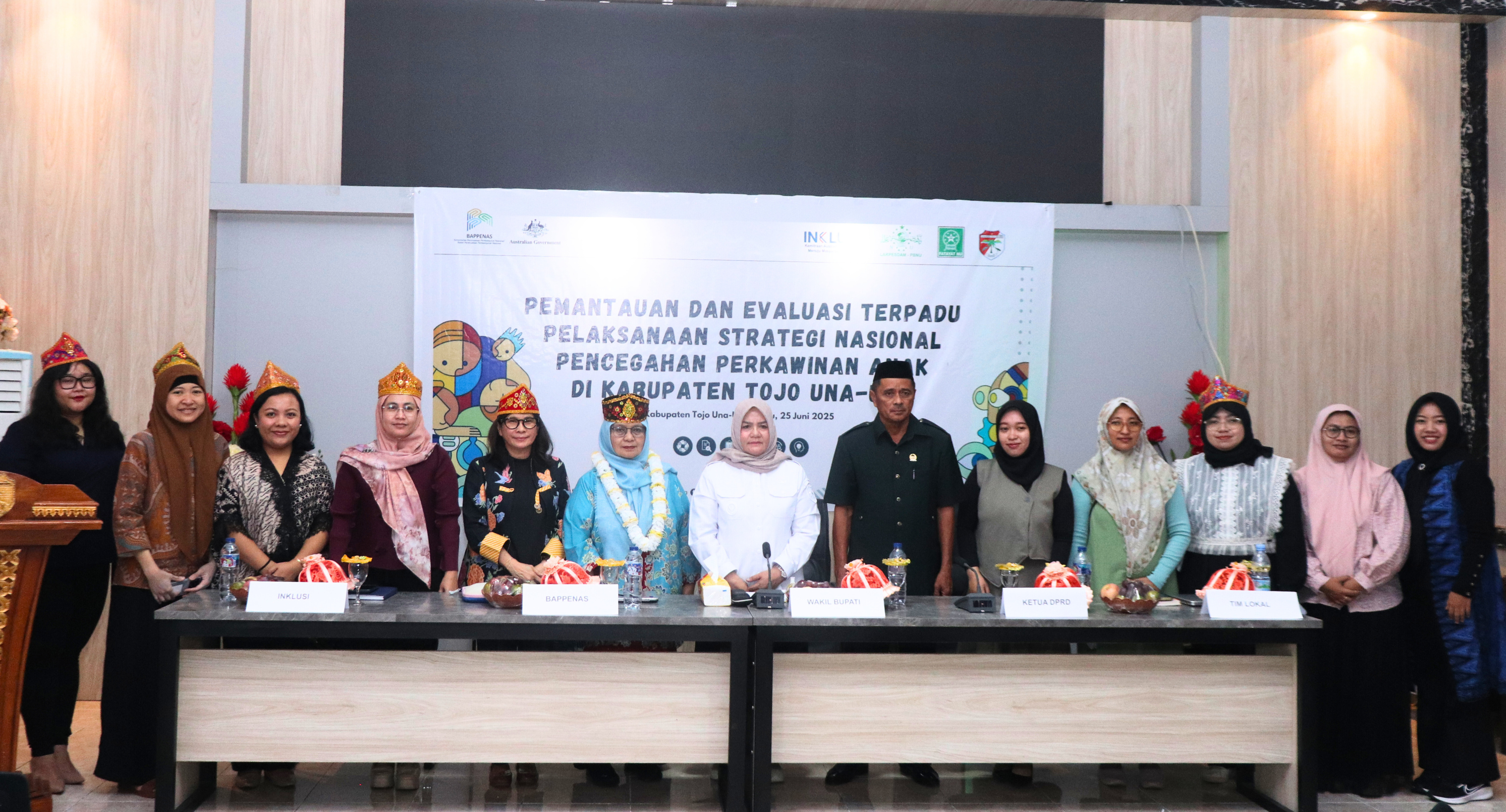In Tojo Una-Una Regency, Central Sulawesi, new hope is emerging amid long-standing challenges. For years, child marriage has been a difficult issue to address due to entrenched social norms, cultural pressures, and limited access to basic services. Now, through cross-sector collaboration facilitated by the INKLUSI Program, in partnership with Lakpesdam PBNU and Fatayat NU Tojo Una-Una, change is beginning to take root, from the grassroots level to policy-making circles.
The INKLUSI Program continues to strengthen efforts to prevent child marriage through multi-stakeholder collaboration at both local and national levels. In Tojo Una-Una, this approach was realised through a series of Focus Group Discussions (FGDs) and Integrated Monitoring on Child Marriage Prevention (PPA) activities held on 23–26 June 2025. The activities aimed to capture on-the-ground dynamics, enhance coordination among stakeholders, and identify good practices in implementing the National Strategy for the Prevention of Child Marriage (Stranas PPA).
The discussions brought together a wide range of participants, including representatives from the Ministry of National Development Planning/National Development Planning Agency (Bappenas), Coordinating Ministry for Human Development and Cultural Affairs, Provincial Legislative Councils, DFAT Australia, and various local agencies such as the Education Office, Health Office, and the Office for Women’s Empowerment and Child Protection (DP3A). Also in attendance were sub-district heads, village leaders, religious figures, child forums, youth groups, women’s organisations (PKK), and civil society partners including Fatayat NU and ‘Aisyiyah. The forum provided a valuable platform to exchange ideas, build shared understanding, and identify policy and operational challenges in the field.

Discussions highlighted several critical issues, such as unregistered child marriages, marriage dispensation requests due to teenage pregnancies, and limited access to education and reproductive health services in remote villages. Despite these challenges, participants agreed on one key message: change is possible when there is space for joint learning and collaboration.
Transformation from the Ground Up
A community-based approach has been the key driver of transformation in partner villages such as Urundaka, Saluaba, Padang Tumbuo, and Borneang. With INKLUSI’s support, Fatayat NU and Lakpesdam PBNU have provided comprehensive assistance not only to children and adolescents but also to families, religious leaders, and village officials.
Limited access to education and reproductive health services also remains a shared concern. Many villages still require improved facilities and more accessible services. This has strengthened cross-sector commitment to improve basic services, enhance the capacity of UPTD PPA personnel, and strengthen data and case management systems for children and youth.
“We don’t just provide education but also support the establishment of Child Forums and build the capacity of adolescents, so they have a safe space to speak up and shape their own futures,” said Salwa Zalsabila, Program Manager of Fatayat NU.
The results are starting to show. Several villages have issued Village Regulations (Perdes) on child protection, formed Child Forums, and reactivated Youth Posyandu as spaces for education and counselling. In Padang Tumbuo Village, local religious leaders have refused to marry underage couples, resulting in zero cases of child marriage in the area. In other villages, education initiatives led by PKK and local health centres have contributed to a significant drop in teenage pregnancy cases, from 85 cases in 2022 to just 15 cases by mid-2025.
Government commitment has also grown stronger. Deputy Regent of Tojo Una-Una, Surya, stated that child protection will be a top priority in the 2025–2029 Regional Development Plan (RPJMD).
“Preventing child marriage is an important part of our vision for a Child-Friendly Regency. We appreciate the support from Bappenas and DFAT Australia through the INKLUSI Program in strengthening cross-sector collaboration at the local level,” she said.
Meanwhile, Yosi Diani, Senior Planner at Bappenas, highlighted the crucial role of civil society organisations and local partners as the frontliners in implementing the national strategy at the village level.
What has unfolded in Tojo Una-Una demonstrates that child marriage prevention is not only a matter of national policy but also about local leadership, collective effort, and the courage to start small. When communities, government, and civil society work hand in hand, child protection becomes more than a policy goal — it becomes a living commitment that grows and thrives within the community.




